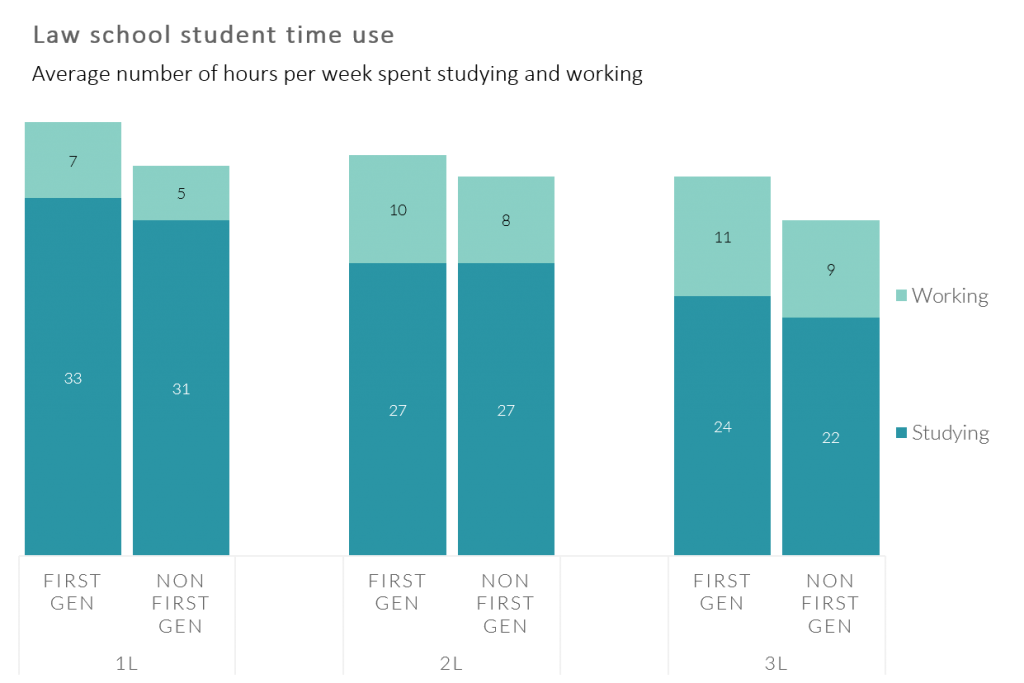First-generation students face a myriad of challenges in higher education. At the undergraduate level, they tend to apply to college with lower admissions indicators (e.g., grade point averages, standardized test scores) than other students, and once enrolled, they tend to persist and graduate at lower rates. The challenges faced by first-generation students have roots in academic, social, and financial realms.
The bulk of the research on first-generation students focuses on the undergraduate experience. However, very little research has been conducted on first-generation students who go on to attend law school. Therefore, the data presented in this section explores largely unexamined questions.
LSSSE 2014 data show that on a number of dimensions, the amount of time that first generation law students spent with peers and faculty outside of class was significantly less than non-first generation law students.
Co-curricular activities are critical components of the academic experience. These activities often supplement class discussions and aid in the development of new skills. They can also make students more attractive to potential employers. First-generation students reported lower rates of participation in some of the most prominent co-curricular activities, such as law journal, moot court, and faculty research assistantships. Eligibility for these activities is often determined by law school grades. Differences in time spent studying for class and working for pay could also contribute.
First-generation students reported spending about 8% more time studying for class and 25% more time working for pay, compared to other students. The disparities in time spent studying are greatest in the latter years of study. First-generation 3Ls reported spending 8.5% more time studying than other 3Ls.
Disparities in the amount of time spent working are most pronounced in the first year, when first-generation students report spending 40% more time. The actual hours spent do not seem particularly high for either group, but aggregated over the course of the school year, the additional time adds up considerably.

